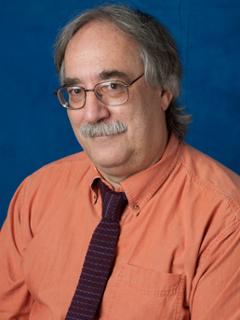Walt Borges is not a native Texan, but neither, he notes, were most of those who died at the Alamo. In fact, Walt was born in New Jersey, but has attempted to rectify the situation by residing thereafter in 21 different cities in 10 states and the District of Columbia. He claims he established official residency in the Lone Star State by marrying and divorcing a native Texan, by having two daughters born in-state and by having his parents become residents of Dallas. He still has not received a green card.
Borges was educated at Cornell University and attended graduate school at Georgetown University and the University of Texas at Austin. He collected a total of one bachelor’s degree from his first nine years of university education, a fact he attributes to his adherence to Mark Twain’s philosophy: “Never let your schooling interfere with your education.”
Borges became a journalist because of his long-standing interest in public affairs. He says, “I got tired of doing work I hated and not getting paid well for it. I decided to do work I liked while not getting paid very well for it.”
His introduction to the legal system occurred in 1980, when he was managing editor of The Daily Texan. He and the editor ordered a photographer to remove her negatives from the newspaper files after campus police searched the files for pictures of a student demonstration. The result was a subpoena from the Travis County district attorney, which he and his colleagues successfully resisted until they relinquished their positions.
His legal situation put him in touch with the Reporters Committee for Freedom of the Press, a Washington-based freedom of information and First Amendment clearinghouse. He intered with the committee for the summer of 1980. He then went to work in Beeville, Texas, for the Beeville Bee-Picayuneas a county and courts reporter. A year later, he moved to Nebraska to work for the Fremont Tribune¸ a daily newspaper owned by the Gannett chain.
In 1982, he returned to Texas as a reporter with The Dallas Morning News, joining trade journal Texas Lawyer in 1985. During his 10 years with the journal, he specialized in covering the internal and electoral politics of the Texas Supreme Court. In 1990, he won a Katie award from the Press Club of Dallas for a story about the failure of Texas state officials to prosecute frequent campaign ethics violations.
In 1998, he was honored for lifetime journalism achievements by the Texas Chapters of the American Board of Trial Advocates. Tex-ABOTA named him Journalist of the Year for his career writings on the Texas judicial system.
During the 1990s, Borges was active in professional journalism organizations. He served as a regional director and national board member of the Society of Professional Journalists and as a member of the executive committee of Texas Media, a coalition of eight journalism organizations that lobbied the Legislature on open government issues.
In 1997, he started the Court Watch program, then affiliated with Texas Citizen Action, now with the Texas Watch organization. The goal of Court Watch was to educate consumers, citizens and taxpayers with regards to the impact of Texas court decisions that affect their lives. As Court Watch director, Borges wrote research reports and op-ed pieces which have appeared in a dozen Texas newspapers. He says he has been quoted — or misquoted — in about 50 of the nation’s leading newspapers, magazines, and news broadcasts. He has appeared on 60 Minutes and Frontline.
He briefly worked for the Texas State Comptroller, writing about economics, and later was a reporter and associate editor of Texas Medicine, the magazine of the Texas Medical Association. He covered medical economics, health insurance and medical liability issues for the physicians.
Borges enrolled in the University of Texas at Dallas in 2004 to pursue his interest in political science, earning his doctorate in 2008. His research interests lie in political behavior relating to general elections, referendums and initiatives, with an emphasis of the psychology of voter choice. He has conducted survey experiments on cues and voter choice in the United States and the United Kingdom. Dr. Borges also is involved with the development of new survey techniques using the Internet. He maintains a research interest in the news media as political institutions.
Dr. Borges is currently a tenured associate professor at the University of North Texas Dallas. He previously had appointments as a term assistant professor of political science at George Mason University in Fairfax, Virginia, teaching classes in research methods and in politics and the news media. He previously taught courses at the University of Texas at Dallas, Southern Methodist University in Dallas, and Grinnell College in Grinnell, Iowa.
He was a Fellow of the British Election Study in 2009-2010, assisting the principal investigators with design and analysis of the surveys conducted before and after the 2010 election.
